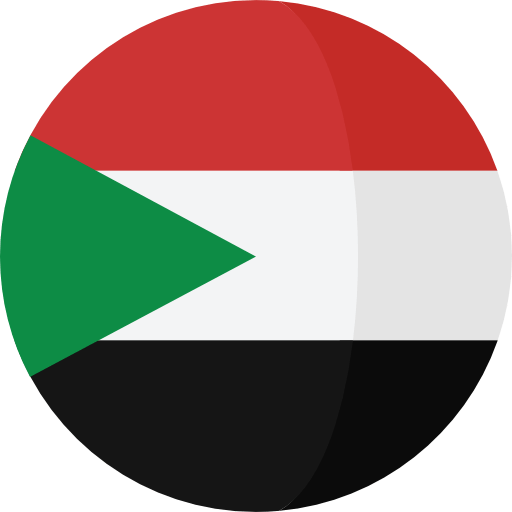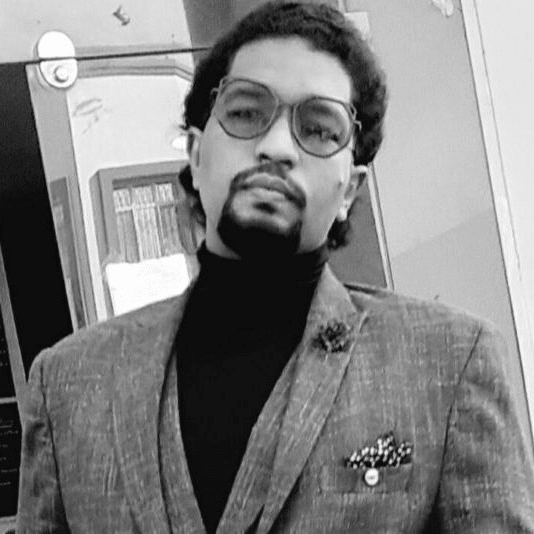What is your educational background?
2014: IGCSE (Al-Corniche International School. Jeddah-Saudi Arabia)
2021: M.B.B.S (Napata College. Khartoum-Sudan)
What is your current occupation?
I have recently been employed to Napata College’s Research Department as a medical researcher (my primary focus is on neuropsychiatry research). As well as a Teaching Assistant at the same College’s Physiology department. I aspire to become a neuropsychiatrist with a primary interest in hallucinations.
What or who got you into STEM?
A true and genuine need to make the world a better place in the best way I can. However, it was through the support of people like my parents, Osman Nemeri, (MD), JD Blom (MD/PhD), Yasser Hanafi (MD, FRCS), Mazin S. Abdalla (MD/MSc) and EB Taha (PhD) that I was able to truly understand what I am passionate about and allow for that to become manifest in a tangible manner. In 2018 (a few months after my 20th birthday), my first paper was published and the rest is, as they say, history.
What is the biggest challenge/barrier you have faced as an African in STEM?
Making it clear that I, and people who look and talk like me, deserve to be here just as much as anyone else. That is, of course, in addition to fighting to be heard in the first place.
How do you think your background/upbringing has been beneficial in your journey/career?
I grew up in an environment that not only supported my passions, but also saw to it that I knew that I can achieve what I wanted, no matter how unrealistic/’far-fetched’ it may have seemed at the time. Although the aforementioned barrier has, and probably still will, manifested itself a number of times; a plethora of positivity and support (from both within The Sudan and abroad) has manifested itself in place of that negativity.
I was also fortunate enough to be born into a relatively privileged position. One in which my parents were capable of affording a private elementary, middle, and high school education (in addition to a private college education) that would grant me abilities that would allow for me to advance myself. I am not certain what life would have been like if those opportunities were not present. I am eternally grateful and am trying my best to see to it that I pay it forward in a manner that would make the world a better place, no matter how incrementally.
.
How do you think we can start to change the narrative surrounding African contributions
to global STEM research & careers?
Many African scientists migrate to the West and elsewhere around the world. They create an, for better or worse, image for what to expect from their places of origin. It is an unfortunate form of sterotyping people. However, until we could create bias training that would eliminate such biases, it is imminent that we act in a manner that brings attention to both the biases of others and those that we may harbor, intentionally or otherwise so that we may act to eliminate them.
In short, we must learn to treat people as individuals and not as members of groups.
Additionally, I believe that we must teach people, at a young age (but it’s never too late), to learn to view the world form another person’s perspective.
Projects like VSA are of immense value in advancing these messages. It is an unfathomable honor being featured here.
What advice would you like to give to young, aspiring Africans in STEM?
Maybe you started your career a bit later in life, maybe there exists a language barrier, or maybe, as is the unfortunate case for many people in Africa, the economic situation was not in your favor growing up. These might be true for you. People will tell you that it is impossible for you to do something, that you don’t deserve whatever it is that you are dreaming of achieving, or that you are someone who talks and dreams a lot. I’d recommend you ‘filter out the noise’ and repeat the following (or, better yet, write it (or type it) and hang it somewhere visible):
It’s doable, it’s possible, it isn’t easy, but I can do it, and I will do it. And it will be worth it.
You could even say it out loud every once in a while, especially when life’s challenges try to do you in.
Do you have any projects you’re working on that you would like us to highlight?
I am currently working on the second edition of my book ‘Alice in Wonderland Syndrome: Based on a True Story’ as well as on another book titled ‘Know Thyself’. Please follow me on Twitter for updates.




